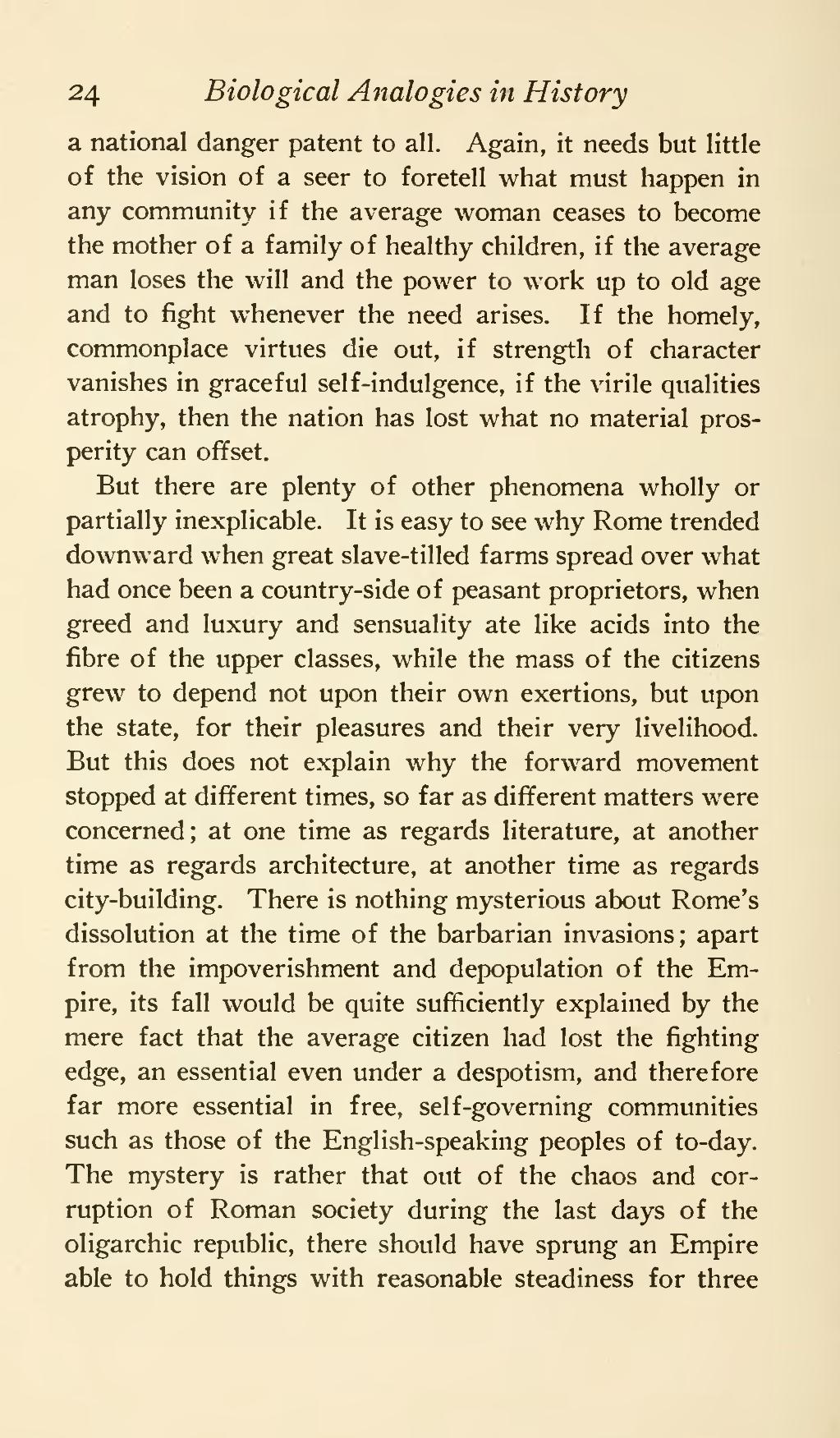a national danger patent to all. Again, it needs but little of the vision of a seer to foretell what must happen in any community if the average woman ceases to become the mother of a family of healthy children, if the average man loses the will and the power to work up to old age and to fight whenever the need arises. If the homely, commonplace virtues die out, if strength of character vanishes in graceful self-indulgence, if the virile qualities atrophy, then the nation has lost what no material prosperity can offset.
But there are plenty of other phenomena wholly or partially inexplicable. It is easy to see why Rome trended downward when great slave-tilled farms spread over what had once been a country-side of peasant proprietors, when greed and luxury and sensuality ate like acids into the fibre of the upper classes, while the mass of the citizens grew to depend not upon their own exertions, but upon the state, for their pleasures and their very livelihood. But this does not explain why the forward movement stopped at different times, so far as different matters were concerned; at one time as regards literature, at another time as regards architecture, at another time as regards city-building. There is nothing mysterious about Rome's dissolution at the time of the barbarian invasions; apart from the impoverishment and depopulation of the Empire, its fall would be quite sufficiently explained by the mere fact that the average citizen had lost the fighting edge, an essential even under a despotism, and therefore far more essential in free, self-governing communities such as those of the English-speaking peoples of to-day. The mystery is rather that out of the chaos and corruption of Roman society during the last days of the oligarchic republic, there should have sprung an Empire able to hold things with reasonable steadiness for three
